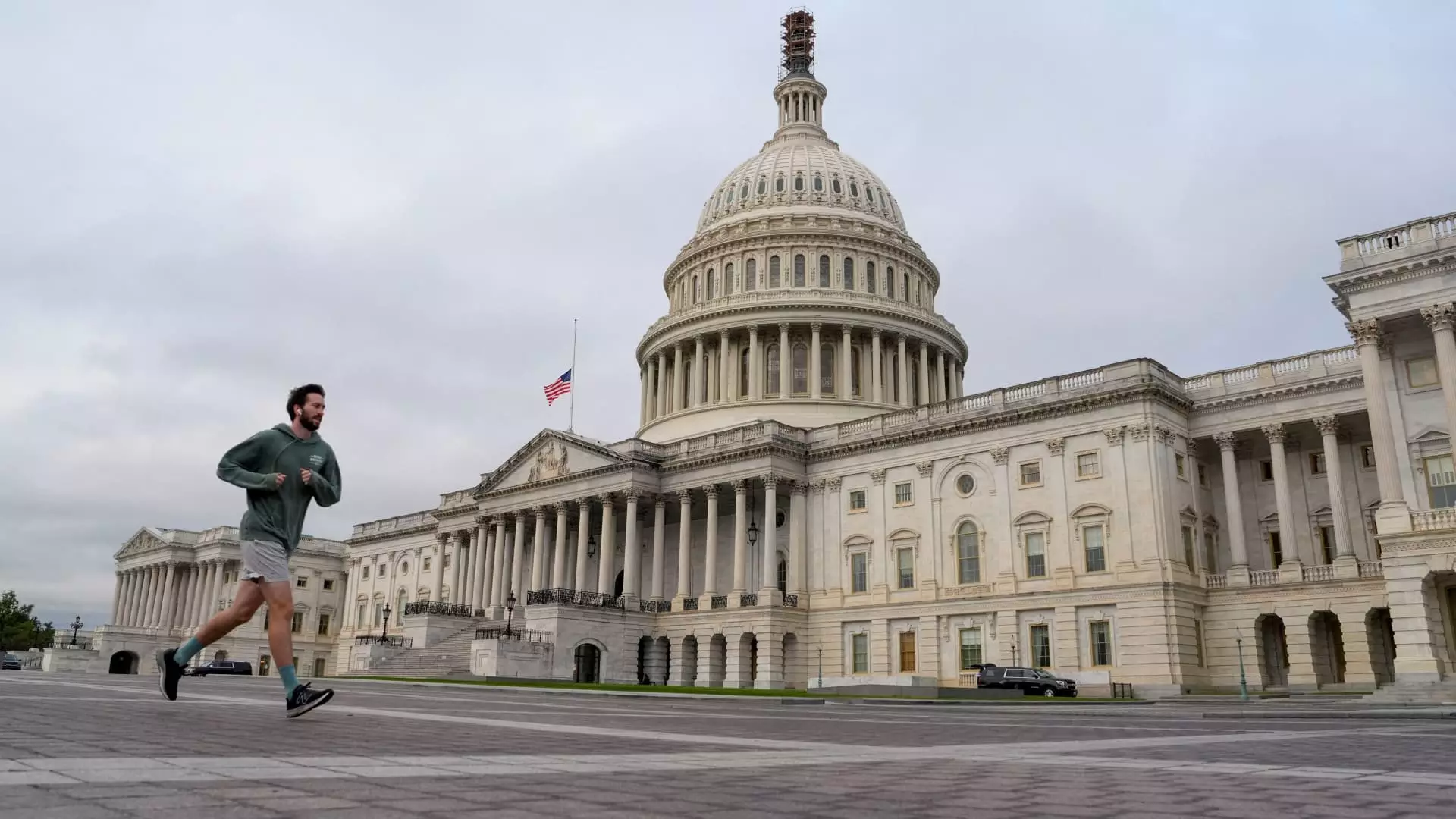The recent announcement of a $1.59 trillion deal on top-line spending by congressional leaders has brought a glimmer of hope in the race to avoid a potential shutdown. This deal, which sets an overall spending budget of $1.59 billion for the 2024 fiscal year, allocates $886 billion to military spending and $704 billion for non-defense spending, according to Republican House Speaker Mike Johnson of Louisiana. It follows weeks of intense dialogue and debate, resulting in hard-fought concessions that unlock the FY 24 topline numbers and pave the way for negotiations on the twelve annual appropriations bills.
With a key deadline of January 19th fast approaching, when funding runs out for many federal agencies, the deal comes as a relief. However, it is crucial to acknowledge that a shutdown is still not entirely out of the question. Despite the semblance of unity between Johnson and Schumer, contentious policy issues continue to divide the parties. As tensions persist, the government’s funding expiration on February 2nd looms as a reminder of the urgent need for a resolution.
Both Senate Majority Leader Chuck Schumer (D-N.Y.) and House Minority Leader Hakeem Jeffries (D-N.Y.) expressed optimism in their joint Sunday letter. They highlighted the framework agreement’s potential to address major challenges faced by the nation and preserve the investments beneficial to American families that were secured by President Biden and Congressional Democrats. However, Johnson admitted that the spending levels would not fully satisfy all parties, nor achieve the desired magnitude of cuts, but it offers a way to move the process forward, reprioritize funding towards conservative objectives, and fight for important policy riders included in the House FY24 bills.
A few notable concessions were made within the deal. One of these concessions involves a $10-billion cut to IRS mandatory funding under the Inflation Reduction Act. Additionally, $6.1 billion of “COVID-era slush funds” faced reduction. Meanwhile, Schumer and Jeffries emphasized that the deal prioritizes non-defense discretionary funding, allocating $772.7 billion to safeguard vital domestic priorities like veterans benefits, healthcare, and nutrition assistance from drastic cuts.
This crucial period represents the first significant test of Speaker Johnson’s ability to govern. Over the past year, the GOP-controlled House experienced a historically low productivity rate, with only 27 bills becoming laws. Within the 118th Congress, this unproductive performance raises concerns. Speaker Johnson faces the additional complication of a shrinking majority, with Louisiana Republican House Majority Leader Steve Scalise absent from Washington, leaving the GOP margin at just one vote. Consequently, any spending deal moving forward will require Democratic support, making it nearly impossible for House Republicans to pass government spending bills along party lines due to opposition from hardline members demanding drastic cuts. Furthermore, Johnson assumed his leadership role following the departure of Former House Speaker Kevin McCarthy of California, making the current scenario even more challenging.
President Joe Biden, in a statement released on Sunday, appeared to support the deal and acknowledged the progress it represents towards averting a shutdown. He emphasized the importance of congressional Republicans fulfilling their responsibilities to fund critical domestic and national security priorities, urging them to halt threats of a government shutdown. Highlighting his own supplemental request, President Biden aims to underscore the significance of funding stability for the nation.
The $1.59 trillion congressional deal offers a glimmer of hope in the race to avoid a government shutdown. While it sets the stage for negotiations and addresses key challenges, its ability to satisfy all parties remains questionable. The impending deadlines and complex political dynamics make a resolution essential. With the president’s backing and a fragile majority in the House, Speaker Johnson faces a daunting task. As the clock ticks, the nation watches to see if this deal can deliver the much-needed funding stability and lay the foundation for a more harmonious approach to future budgetary negotiations.

Leave a Reply